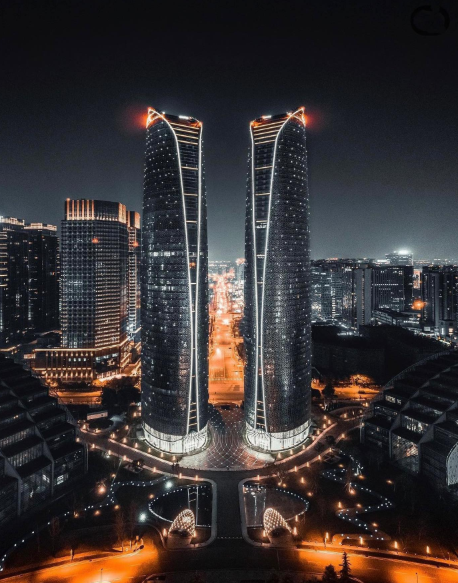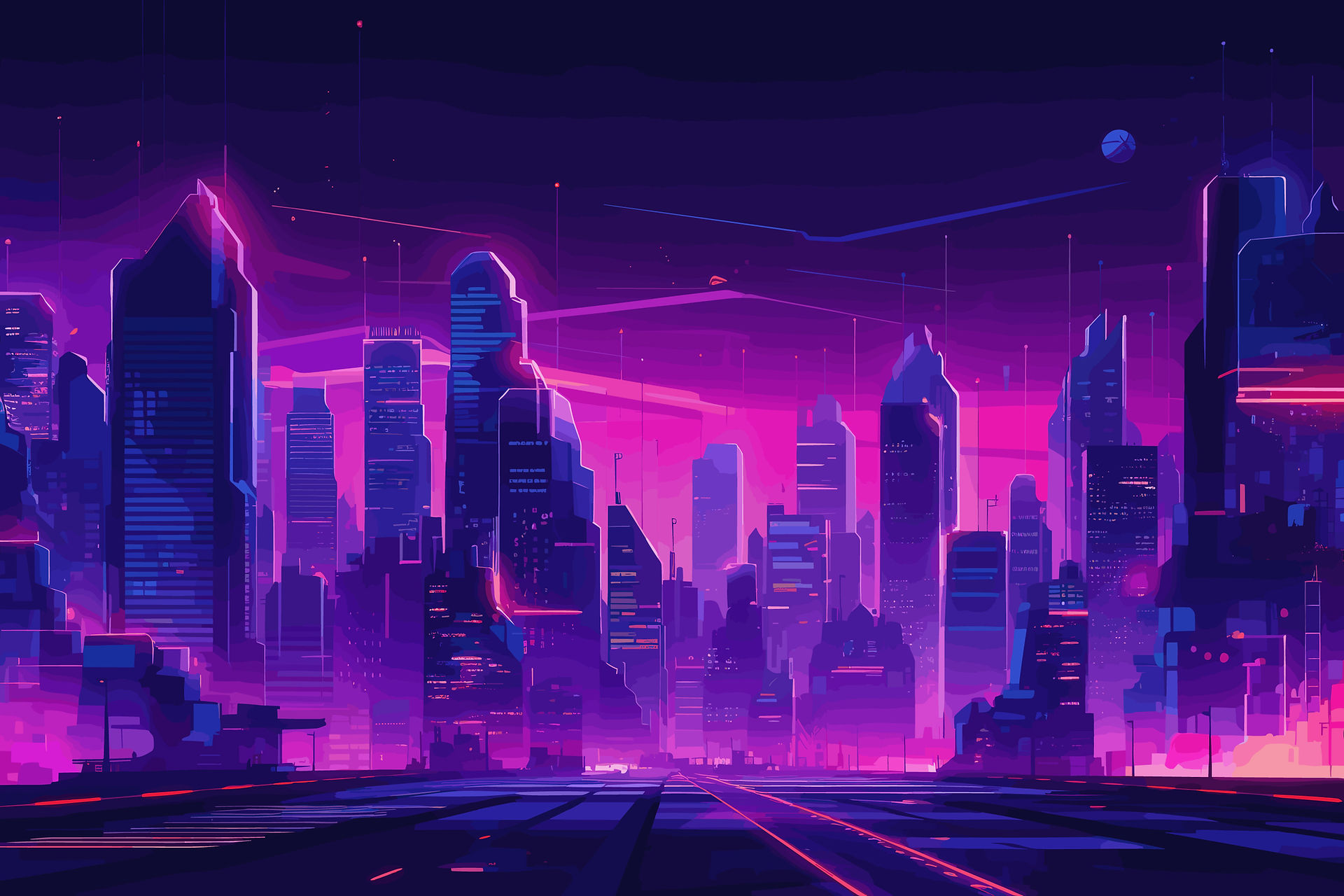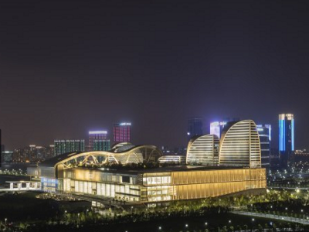Cyberpunk China: Futuristic Cities Beyond Shanghai and Chongqing
- Mr Richard

- Aug 31, 2025
- 4 min read
Everyone knows that cities like Shanghai and Chongqing are synonymous with cyberpunk aesthetics, with their towering neon-lit skylines and futuristic architecture. But beyond these well known megacities, China is home to other urban landscapes that feel just as striking, places where modern design, technology hubs, and bold lighting schemes come together to create a truly sci-fi atmosphere. Shall we take a look?
Guangzhou
Guangzhou, one of China’s oldest cities, has grown from a historic Pearl River trade hub into a metropolis defined by daring architecture and illuminated skylines. Towering buildings with dynamic light displays dominate the night, while innovative urban design projects continue to reshape its image.

As a central player in the Greater Bay Area, Guangzhou blends tradition with a forward-looking aesthetic, creating cityscapes that feel almost cinematic. It's vibrant atmosphere makes it a natural fit for cyberpunk-inspired photography and storytelling.


Shenzen
Once a humble fishing village, Shenzhen transformed into a global tech powerhouse in just a few decades, symbolizing China’s rapid urbanization. Located just north of Hong Kong, it was designated as the country’s first Special Economic Zone in 1980, which fueled its explosive growth and futuristic skyline.
Today, it’s home to tech giants like Huawei and Tencent, cutting-edge architecture, and sprawling districts that glow with LED lights at night. Shenzhen’s mix of relentless innovation and vertical urbanism gives it a distinctly cyberpunk atmosphere.

Left: Futian CBD: Neon signs and illuminated skyscrapers - Right: Kingkey 100: Skyscaper with LED lightning.
Hangzhou
Famous for its ancient temples and scenic West Lake, Hangzhou has reinvented itself as one of China’s most advanced centers for technology and innovation. The city is home to Alibaba’s global headquarters and several innovation districts, making it a symbol of China’s digital economy. Its skyline features sleek towers and futuristic complexes like the Hangzhou International Expo Center, contrasting sharply with its historic neighborhoods.
This mix of tradition and hypermodern development gives Hangzhou a unique identity, where serene landscapes meet the energy of a high-tech future.
Left: Qianjiang New Town - Right: Hangzhou International Expo Center
The Qianjiang New Town Light Show in Hangzhou transforms the skyline into a living canvas of color and motion, with synchronized lights dancing across towering skyscrapers. This dazzling display highlights the city’s tech-driven identity and futuristic charm, making it a must-see for urban photography lovers:

Chengdu
Known for its relaxed lifestyle and cultural heritage, Chengdu has rapidly transformed into a leading city for science and advanced urban development in western China. Massive projects like the New Century Global Center, one of the largest buildings in the world, and the futuristic Tianfu International Airport reflect the city’s bold vision of urban design.
New districts, such as Tianfu New Area, feature experimental architecture and sprawling high-tech zones that give Chengdu a distinctly sci-fi atmosphere. This contrast between ancient traditions and cutting-edge infrastructure creates a cyberpunk setting unlike anywhere else in China.

Left: Chengdu Tianfu International Airport - Right: New Century Global Center
Nanjing
As one of China’s most historic capitals, Nanjing carries centuries of cultural significance, yet in recent years it has embraced bold, futuristic architecture. Its skyline is dominated by skyscrapers like Zifeng Tower and the Greenland Financial Center, both symbols of the city’s growing global influence.
Beyond its towering landmarks, Nanjing invests heavily in modern urban design and creative spaces, such as International Youth Culture Centre. The blend of ancient city walls and advanced structures creates a unique atmosphere where history and a high-tech future coexist, making it a fascinating setting for cyberpunk enthusiasts.

Left: Zifeng Tower - Middle: TSMC's Nanjing facility - Right: Nanjing Zendai Himalayas Center
Suzhou
Suzhou is often celebrated for its classical gardens and canals, but its modern skyline tells a very different story. The iconic Gate of the Orient, a massive skyscraper shaped like a colossal doorway, has become a symbol of the city’s leap into contemporary architecture. It's bold design dominates the skyline and reflects Suzhou’s ambitions to blend cultural heritage with a futuristic outlook.

Nearby, the Suzhou Center Mall adds another layer to the city’s modern identity with its vast interior spaces, dynamic lighting, and sleek design, making it a hotspot for urban exploration. Together, these landmarks show a striking contrast between the ancient beauty Suzhou is known for and its rapidly evolving high-tech image, giving the city a cyberpunk edge.

China’s cyberpunk aesthetic extends far beyond its most famous megacities, revealing futuristic skylines and bold architecture in unexpected places. From Chengdu’s sprawling innovation districts to Suzhou’s towering Gate of the Orient, each city blends history, technology, and design in its own way. These landscapes feel like scenes from a sci-fi film, proving that the cyberpunk future is already here and it’s spread across the nation.




















What a beautiful images!